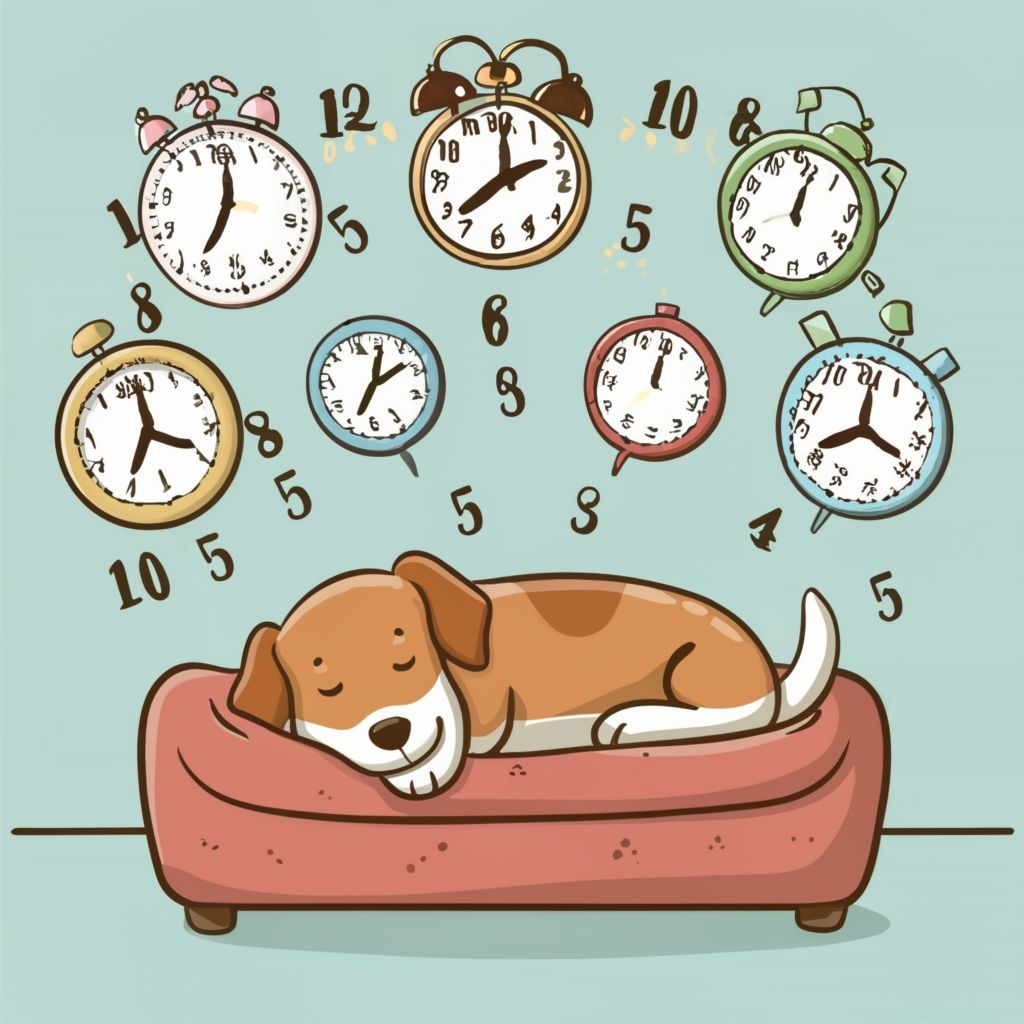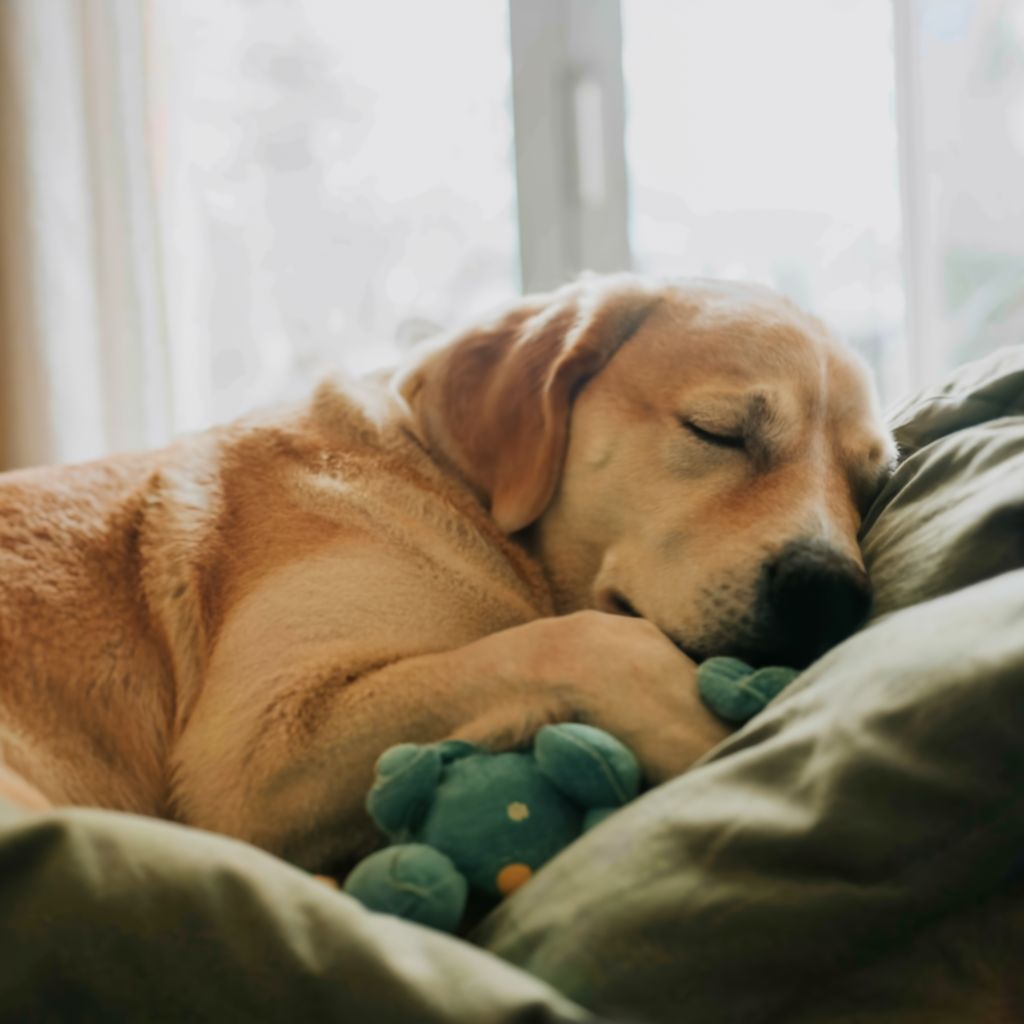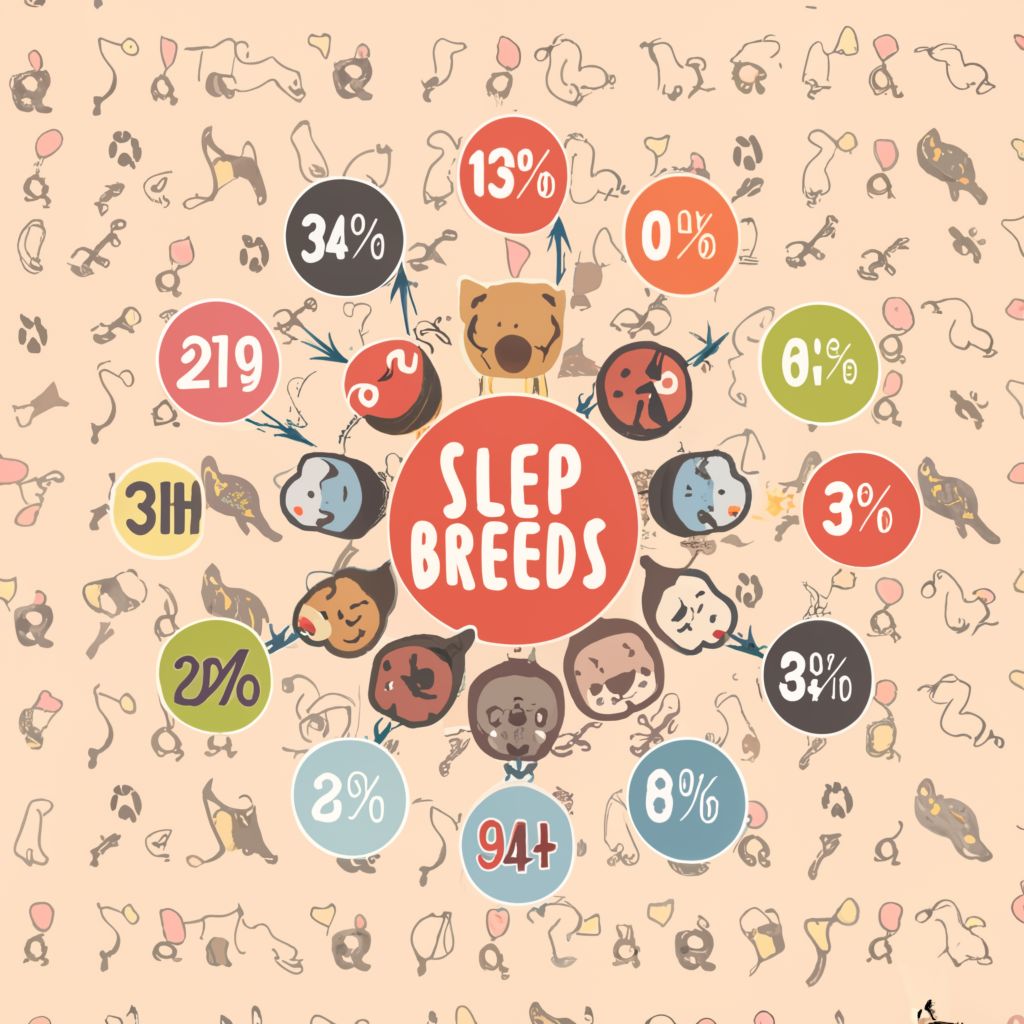How Much Sleep Do Dogs Need? Understanding Your Dog’s Sleep Patterns and When to Be Concerned

How Much Sleep Do Dogs Need?
Sleep is an important factor in life. Without good sleep, we cannot do anything properly. Like humans, dogs need plenty of sleep to be healthy and happy. But have you ever wondered how much sleep dogs really need? We explore the fascinating world of dog sleep and discover just how much shut-eye our furry friends really require.
Dogs can sometimes seem lazy, resting and sleeping for hours. But have you ever wondered if they are simply giving in to their natural need for sleep? How many hours do our furry companions actually spend catching Zs? Well, on average, dogs need about 12-14 hours of sleep every day. However, this can vary depending on factors such as age, race, size and activity level. Let’s dive into the fascinating world of dog sleep to understand why our dogs seem to have a nap day.
Do puppies need more sleep than adult dogs?
Puppies are small and have less energy than adult dogs. You may notice that they sleep more often throughout the day, and for good reason – puppies need more sleep than adult dogs. The growth and development of puppies are similar to that of infants, resulting in rapid growth. This growth requires a lot of energy and sleep is essential to replenish and support their growing bodies and brains. So yes, puppies need more sleep than adult dogs.
Is it normal for my dog to sleep all day?

Yes, it is normal for dogs to sleep a lot during the day. Dogs usually require around 12-14 hours of sleep daily, and this amount may vary depending on their age level, breed, or level of activity. Due to their crepuscular structure, dogs are most active during sunrise and sunset, but they tend to rest during the day and night. So if your dog seems to sleep a lot during the day, it’s probably just his natural sleep pattern. However, if you notice any other unusual changes in your dog’s behavior or health, it is always a good idea to contact your veterinarian to rule out any potential problems.
Should I be concerned if my dog sleeps more than usual?
Your dog’s sleep pattern may vary based on various factors, including age, activity level, and other symptoms. Although dogs sleep a lot, significant changes in their sleep patterns should be monitored and treated if possible. Here are some factors to consider:
- Age: Puppies and older dogs usually sleep more than adult dogs. If an adult dog experiences a significant surge in sleep, it’s worth considering.
- Activity level: If your dog is still active when awake and shows no other signs of illness, increased sleep may not be the reason to touch. However, if your dog seems lethargic or disinterested in activities he used to enjoy, this could be a sign of an underlying problem.
- Health problems: Excessive sleep can sometimes be a symptom of health problems such as infections, hormonal imbalances, pain. . or even psychological problems. If your dog’s increased sleep is accompanied by other symptoms such as loss of appetite, weight loss, vomiting, diarrhea, or lethargy, it is important to seek a proper evaluation from your veterinarian.
- Environmental factors: changes in the environment, e.g. temperature, lighting, or noise levels can affect a dog’s sleep rhythm. Additionally, stress or anxiety can lead to increased sleep as a coping mechanism.
Are there specific breeds that require more sleep than others?

Are there specific breeds that require more sleep than others?
- Giant breeds: Large and giant breeds such as Great Danes, Mastiffs, and Saint Bernards tend to sleep more than smaller breeds. Their larger bodies and slower metabolisms often lead to an increased need for rest and recovery.
- Bulldogs: Bulldogs, including English and French bulldogs, are known for their relaxed and calm nature. Their usual routine involves taking a break for the entire day.
- Greyhound Racing: Despite being known for their speed and athleticism, greyhounds are notorious indoor couch potatoes. They have short bursts of energy followed by long periods of rest.
- Bassets: Bassets are relaxed and calm and spend much of their time sleeping. Their drooping eyes and long ears give them a pleasant sleepy appearance.
- Older Dogs: Regardless of breed, older dogs tend to sleep more than younger dogs. As dogs grow older, they lose their energy and require more rest to recover and maintain their health.
Can lack of sleep affect my dog’s behavior or health?
Yes, just like humans, sleep deprivation can affect your dog’s behavior and health.A lack of sleep can cause dogs to become irritated, restless, or lethargic. Their ability to concentrate and learn new things can also suffer. In addition, lack of sleep can weaken your dog’s immune system, making him more susceptible to illness and infection. Over time, chronic sleep deprivation can cause serious health problems and even shorten your dog’s life. It’s important to make sure your dog is getting enough quality sleep to support their overall well-being and happiness. If you notice changes in your dog’s behavior or sleeping patterns, consult your veterinarian.
What should I do if my dog has trouble sleeping?
If your dog is having trouble sleeping, there are several steps you can take to help them get the rest they need:
- Assess the Environment: Assess your dog’s sleeping environment to ensure it promotes restful sleep. Make sure the area is quiet, comfortable, and free of distractions or distractions.
- Establish a bedtime routine: Create a consistent bedtime routine that signals to your dog that it’s time to settle down and sleep. Engage in calming activities such as quiet walks, gentle grooming, or quiet playtime before bed.
- Provide comfort and support: Make sure your dog has a comfortable and supportive bed that meets his needs. Consider factors such as size, age, and sleep preferences when choosing a bed for your dog.
- Treat Anxiety or Stress Issues: If your dog is experiencing anxiety or stress, try to address those issues to improve the quality of his sleep. Give your dog a safe space to retreat to when anxious, and consider using calming aids such as pheromone diffusers, anxiety vests, or herbal supplements.
- Watch diet and exercise: Avoid feeding or feeding your dog large amounts. of water just before going to bed because it can disturb sleep. Also, make sure your dog gets enough physical and mental exercise during the day to tire him out and improve his sleep at night.
- Talk to your vet: If your dog is still having trouble sleeping despite your best efforts, it’s important to talk to your vet. They can help identify health or behavioral issues that may be affecting your dog’s sleep and provide personalized recommendations for improvement.
“Remember, a good night’s sleep can set the stage for a great day ahead, while a restless night can leave your dog feeling tired and unproductive. Ensuring your dog gets the quality rest they need is essential for their overall health and happiness.”
